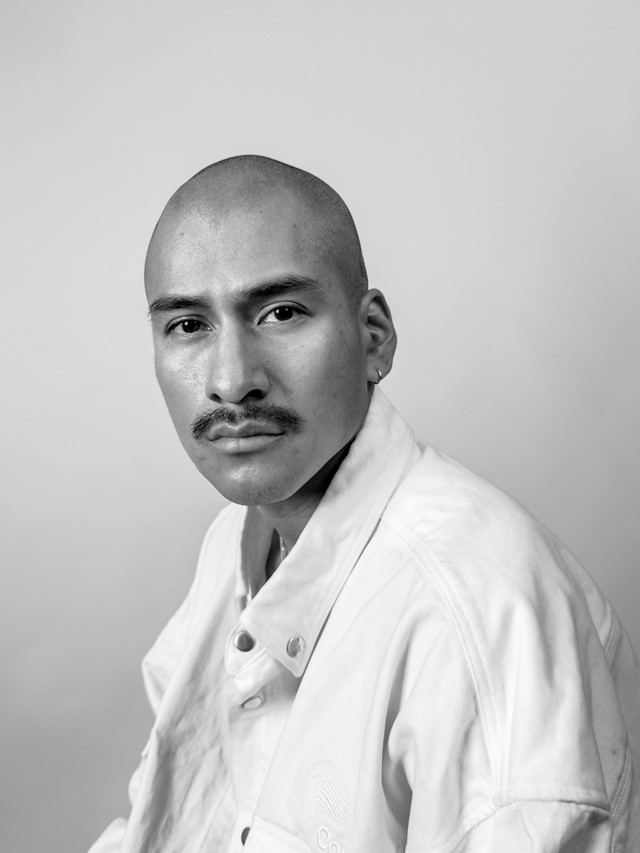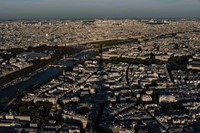“When you look at everyday life, it really is filled with moments and objects that are very interesting or beautiful,” says one of the featured photographers in I Remember You, a two-day exhibition in Paris
Photography has been cherished as a memory-keeping device for as long as the medium has existed. But with the advent of camera phones – and their portable immediacy and accessibility – every waking moment can be recorded, and our visual archives are never-ending. Imagery has become, in a way, disposable and, by proxy, memory has lost a touch of preciousness. I Remember You, a two-day exhibition curated by the New Museum’s deputy director Dr Isolde Brielmaier in collaboration with Apple as part of Paris Photo Week, so rightly reframes this conundrum: what if the promptness of tools, like the iPhone, could in fact help us to inject more consciousness, more presence, more awareness into our daily lives?
The five photographers included in the exhibition, who hail from diverse backgrounds and specialities, were given the simple prompt from Brielmaier to create a body of work that explored “themes of memory and nostalgia, and places and people and things that we are fond of.” The only consign was that their work had to be shot using Apple’s recently released iPhone 15 Pro Max. Brielmaier collaborated with each artist for some months prior, but they only began shooting in September of this year. “There was a kind of momentum … a fluid, fast back-and-forth between me and all of the artists,” said Brielmaier, “we had time to think and rethink different approaches, but it was all still fresh in our memory.”
Photographer Stefan Ruiz interpreted the theme through a series of intimate portraits of young New Yorkers, who like himself, had family from Mexico. By simply holding the iPhone, he imitated how he would work with a larger format camera. “I often like photographing people who aren’t used to having their picture taken as they are different in front of the camera,” he explained of the experience working with the four sitters, each of whom he was connected with through his close friend, fashion designer Willy Chavarria. “Portraiture is a collaboration, and you need the sitter to participate.” At a time when we have, perhaps inadvertently, been primed to pose for the flatness and rapidity of social media, the full-bodied gaze of Ruiz’s work is piercing and eternal.

But, for Japanese photographer Mika Ninagawa, this project was about immortalising life’s fleeting moments. Her macro photographs of blossoming, and then decaying, roadside flowers are laid floor-to-ceiling as part of an immersive experience that includes video and sound. The larger-than-life scale of her work affirms her feeling that “when you look at everyday life, it really is filled with moments and objects that are very interesting or beautiful. And the iPhone allowed me to capture this without missing these moments. It’s really changed the way I shoot.” Sharing a similar interest in rediscovering oft-overlooked details of daily life, French photographer Karl Hab turned the camera on his hometown of Paris. The contrast of impersonal aerial shots of the sprawling city against still-lives of stacked bistro chairs, a shadowed staircase, invokes an eerie sense that nostalgia is waiting for us in the most unexpected of places.
If these works were about singular moments, the exhibition also explores how rapid-stream imagery, made possible by the iPhone, allows us to cathartically pull narratives from our own lives. Eritrean-Swedish photographer Malin Fezehai – who is the first person to win a World Press Award for a photo shot on iPhone – memorialises the intimacy of friendship by documenting a close friend’s road trip from Los Angeles to Las Vegas. Her photographs are pieced together with slow-motion videos as “I love shooting slo-mo, like when you’re in a car and using it as a way of experiencing place,” she explained. “I just wanted to capture the moment in a suspended way.” Similarly, Hong-Kong-based photographer Vivien Liu shared stories of her childhood through a nostalgia for place. Her architectural photographs centre on buildings that she grew up around and that are being threatened by the rapid renewal of Hong Kong’s urban landscape – “I have profound memories of these buildings and through this body of work I wanted to make tangible these feelings and thoughts of nostalgia.”
I Remember You puts to bed any fear that the constancy of image-capturing devices like the iPhone may have desensitised us to the nuances of life: it is a stunning reveal of how much beauty and preciousness lie within the people, objects, and environments that interweave our daily lives – and the power of the iPhone to remind us of this.
I Remember You is open Friday 10 November and Saturday 11 November from 11am-7pm at 14, rue de la Corderie, 75003 Paris.






